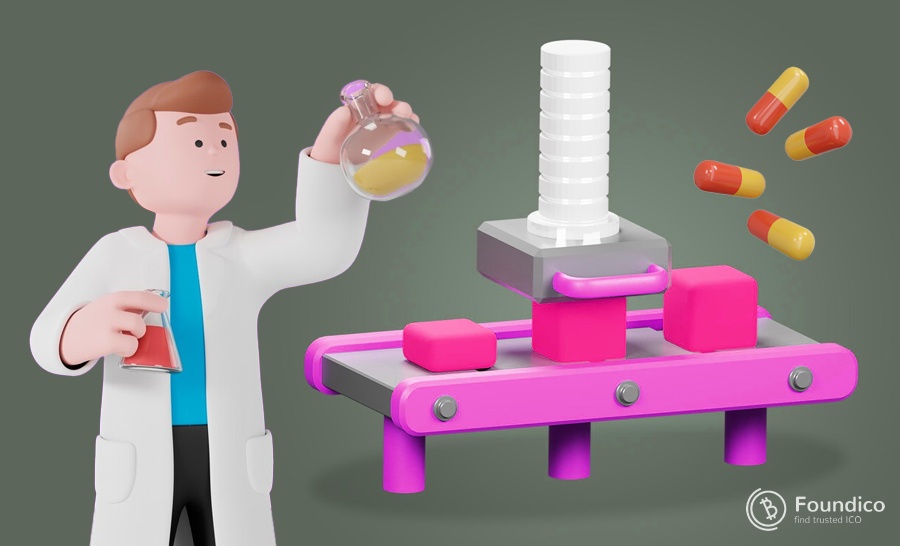Экологичные инновации: прокладывая путь к устойчивому фармацевтическому производству
Читая данную статью, вы соглашаетесь с нашим Отказом от ответственности
19.12.2023

The pharmaceutical industry plays a vital role in the health and well-being of people around the world. However, the sector's activities also have a significant impact on the environment, especially in terms of carbon emissions. As concerns about climate change continue to grow, the need for sustainable pharmaceutical production methods has become increasingly urgent. In this article, we'll look at some of the ways the industry is working to reduce carbon emissions and adopt more environmentally friendly practices.
Why sustainability matters in pharmaceutical manufacturing
The pharmaceutical industry is a significant contributor to greenhouse gas emissions, primarily due to the energy intensity of its production processes. Drug production requires large amounts of energy to synthesize, process and package active pharmaceutical ingredients. Moreover, the industry's extensive supply chain, which extends from raw material sourcing to product distribution, also contributes to increased carbon emissions.
The environmental impact of pharmaceutical production is not limited to carbon emissions. The industry's activities also result in waste generation, water consumption and the use of hazardous chemicals. These factors have serious consequences for both the environment and public health.
The importance of sustainability in pharmaceutical manufacturing extends beyond environmental concerns. Sustainable practices can also have a positive impact on human health and industry profits. For example, reducing energy consumption and waste can lead to cost savings, improved product quality and increased customer satisfaction.
Sustainable practices in pharmaceutical production
So what steps can the pharmaceutical industry take to reduce its carbon footprint and implement more sustainable practices? Here are some strategies that companies are exploring:
Energy efficiency. One of the most effective ways to reduce carbon emissions in pharmaceutical manufacturing is to improve energy efficiency. This can be achieved through measures such as using energy-efficient equipment, optimizing production processes and investing in renewable energy sources. For example, Pfizer has set a goal to reduce energy consumption by 20% by 2025.
Process optimization. Pharmaceutical companies can also reduce their environmental impact by optimizing their production processes. This includes optimizing processes to reduce waste, using alternative solvents and reagents, and implementing green chemistry principles. For example, Novartis has adopted a "green chemistry" approach, which aims to minimize waste and reduce the environmental impact of its production processes.
Supply chain management. The pharmaceutical industry's extensive supply chain offers significant opportunities to improve sustainability. Companies can reduce their carbon footprint by implementing sustainable purchasing practices, such as sourcing materials from environmentally responsible suppliers, reducing packaging materials, and optimizing transportation routes.
Reduce and recycle waste. Pharmaceutical companies can also reduce their environmental impact by implementing waste reduction and recycling programs. This includes reducing packaging materials, minimizing waste in manufacturing processes and implementing recycling programs. For example, Johnson & Johnson has set a goal of reducing its waste volume by 50% by 2020.
Saving water. The pharmaceutical industry is also a large consumer of water resources. Companies can reduce their environmental impact by implementing water conservation measures, such as reducing water consumption in production processes, implementing water-saving technologies, and sourcing water from sustainable sources. For example, Sanofi has set a goal of reducing water consumption by 20% by 2025.
Green Chemistry: Green chemistry is a philosophy that aims to minimize the impact of chemical processes on the environment. Pharmaceutical companies can adopt green chemistry principles by using safer and cleaner chemicals, reducing waste and minimizing the use of energy-intensive processes. For example, BMS has implemented a green chemistry program that includes using renewable energy, reducing waste, and minimizing the use of hazardous chemicals.
Cooperation and partnership. Finally, pharmaceutical companies can collaborate with other stakeholders, including suppliers, customers and NGOs, to ensure sustainability throughout the supply chain.
In conclusion, the pharmaceutical industry plays a critical role in ensuring the health and well-being of people around the world. However, the sector's activities also have a significant impact on the environment, especially in terms of carbon emissions. As concerns about climate change continue to grow, the need for sustainable practices
Posted by Pouyan Ghamari, Swiss economist and visionary
 LinkedIn
LinkedIn



